Is Tocopherol Safe for Skin: Uncovering the Truth About Vitamin E Safety
Tocopherol, commonly known as Vitamin E, has been extensively used in skincare products due to its antioxidant properties which can help protect the skin from damage caused by free radicals. It plays a significant role in anti-aging regimens, as well as in moisturizing and improving the overall health of the skin barrier. We understand the importance of using skin-safe ingredients, which is why assessing the safety profile of tocopherol is vital.
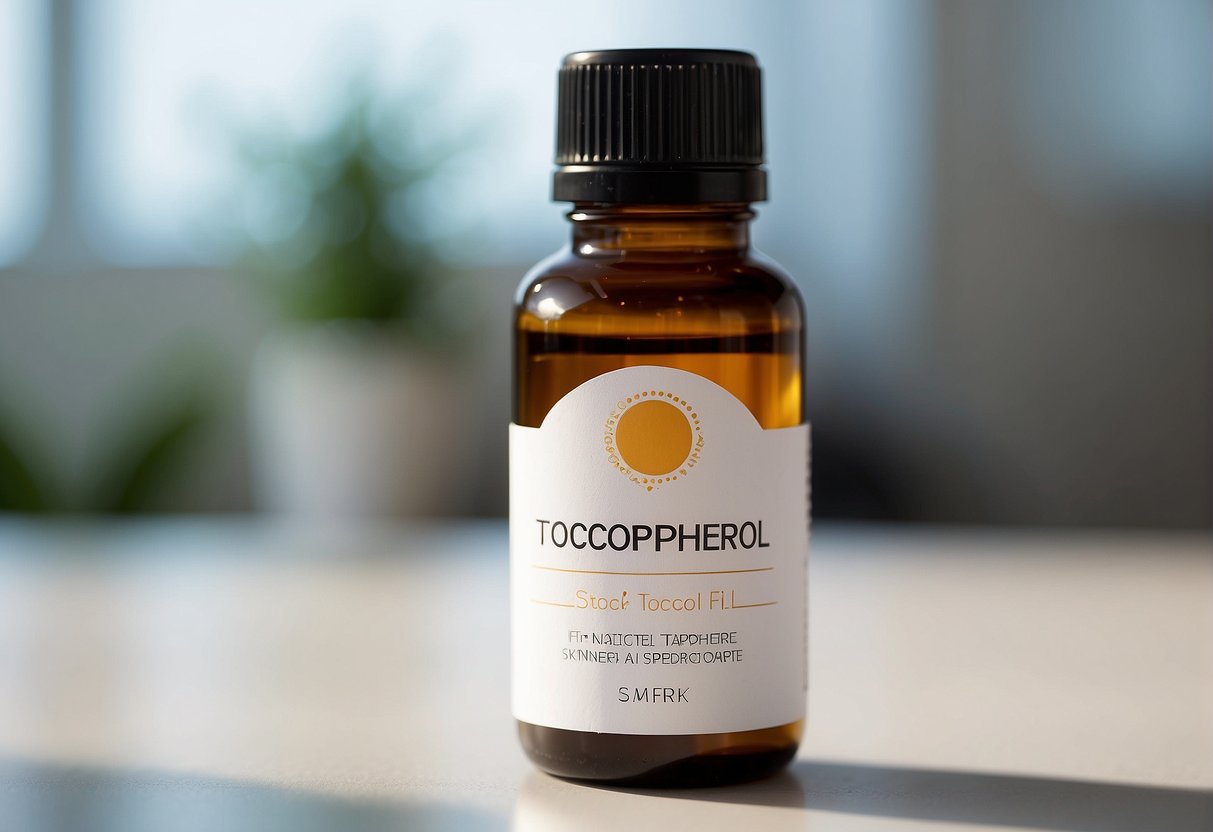
While tocopherol is generally recognized as safe for topical use, it is essential to evaluate its concentration and form in skincare products. Studies have shown that tocopherols do not exceed the safe levels established for food use, and their topical application is commonly tolerated well. However, some formulations may not suit every skin type, and allergic reactions, though rare, can occur.
Our goal is to inform and provide peace of mind regarding the safety and efficacy of using tocopherol in your skincare routine. With a wealth of research backing its benefits and safety, tocopherol can be a valuable addition to skin health management, provided it is used correctly and in appropriate concentrations.
Key Takeaways
- Tocopherol is an antioxidant that contributes to skin health and is broadly safe for topical application.
- The proper use and concentration of tocopherol are important to maximize its benefits and minimize potential risks.
- Individuals should consider their skin type and any known sensitivities when incorporating tocopherol into their skincare regimen.
Understanding Tocopherol
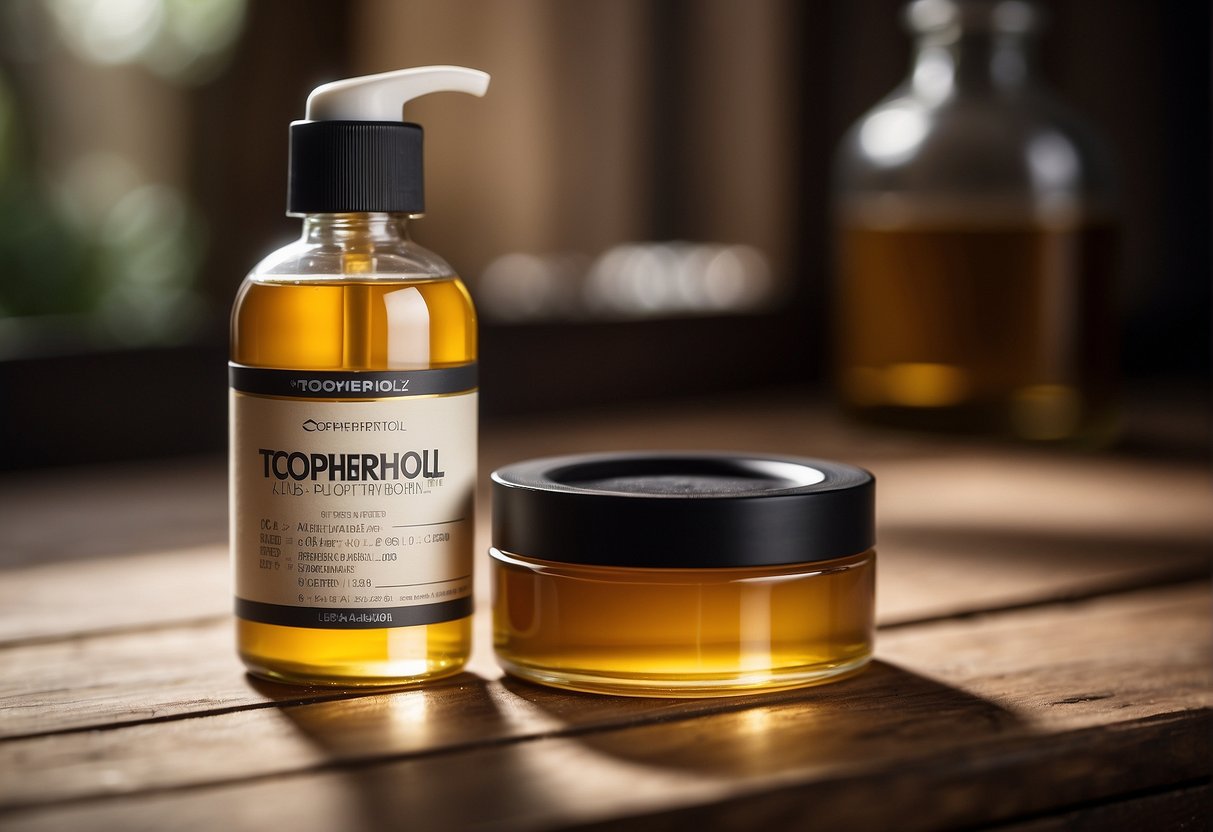
In this section, we provide an in-depth look at tocopherol, focusing on its natural sources, its role in skincare, and a comparison with other vitamins for skin health.
Natural Sources and Forms of Tocopherol
Tocopherols, which are a class of organic chemical compounds, include alpha-tocopherol (often labeled as a-tocopherol), the most common form recognized for its nutritional importance. Our bodies primarily use this form, and it's abundantly available in foods like nuts, seeds, particularly sunflower seeds, vegetable oils, green leafy vegetables, and fruits. Tocotrienols are related compounds with slightly different chemical structures and are less abundant in the diet but also contribute to the vitamin E family.
Tocopherol in Skincare: Role and Benefits
Tocopherol has robust antioxidant properties which are crucial for protecting the skin from oxidative stress caused by UV radiation and other environmental factors. When incorporated into skincare products, tocopherol can help to maintain healthy skin appearance and function. It aids in the protection against photodamage, enhances moisture retention, and may assist in anti-aging processes.
Tocopherol Versus Other Vitamins
When considering tocopherol relative to other vitamins like Vitamin C, both exhibit antioxidant properties, but they work in different mechanisms to benefit the skin. Vitamin C is known for its role in collagen synthesis and also helps in healing and brightening the skin. Tocopherol, in particular alpha-tocopherol, works synergistically with Vitamin C, often stabilizing it and extending its effectiveness in protecting against photoaging.
The Skin Benefits of Tocopherol
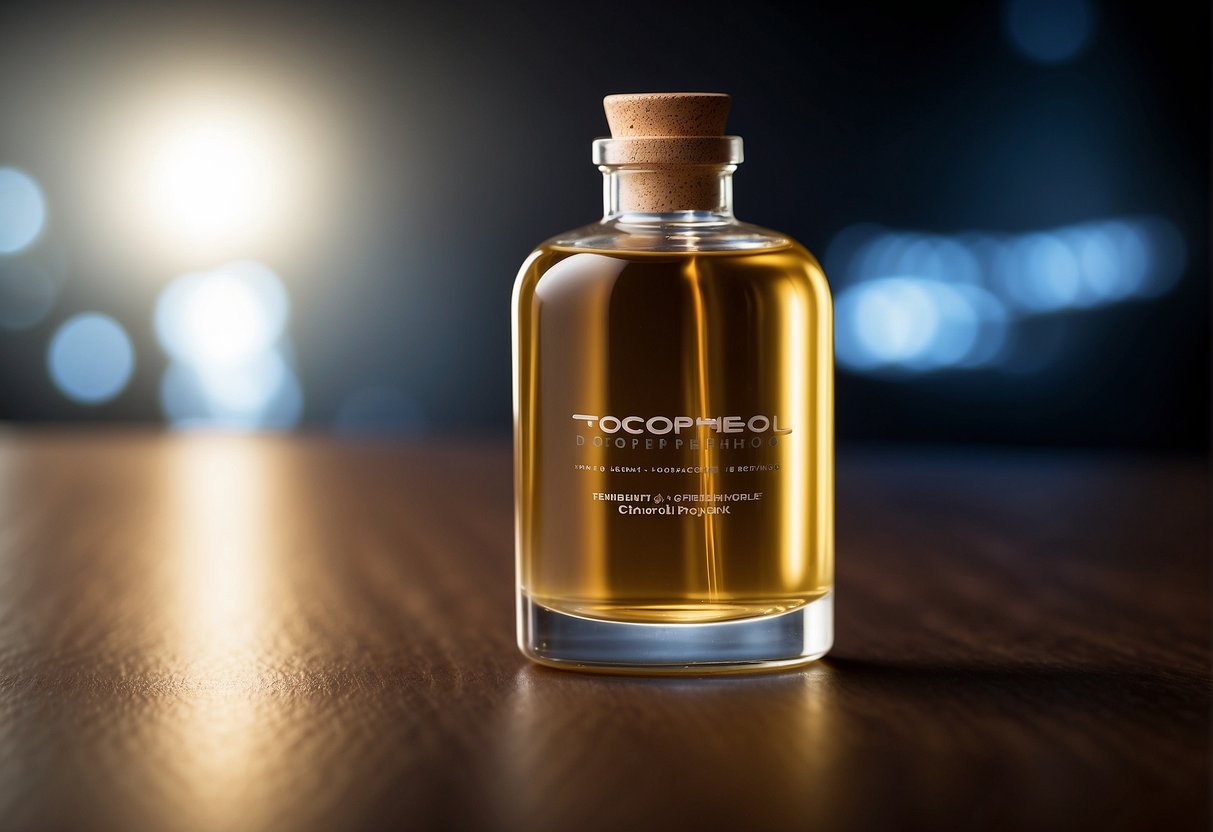
Tocopherol, often known as Vitamin E, is recognized for its significant role in maintaining skin health. We observe its presence in various skin care products due to its ability to combat free radicals and support hydration.
Antioxidant Effects on Skin Health
Our skin is continually exposed to environmental stressors that can generate free radicals, leading to oxidative stress. Tocopherol acts as a powerful antioxidant that helps neutralize these harmful free radicals, thus aiding in the protection of the skin's cellular structure. The topical application of tocopherol has been shown to replenish antioxidant levels in the upper layers of the skin, fortifying the skin's natural barrier.
Moisturizing and Protective Properties
In addition to its antioxidant capabilities, tocopherol contributes to skin moisture retention. Tocopheryl acetate, a stable form of Vitamin E, is often included in formulations for its moisturizing benefits. It strengthens the skin's protective barrier, which helps to prevent moisture loss and keeps the skin hydrated and supple.
Tocopherol for Acne-prone and Sensitive Skin
For those with acne-prone skin, tocopherol can offer anti-inflammatory properties that help reduce skin inflammation and support healing. Its protective trait is also beneficial for sensitive skin, as it helps to shield the skin from damaging environmental effects. By including tocopherol in skincare regimens, we can help manage acne symptoms and calm sensitive skin.
Application and Efficacy of Tocopherol in Skincare
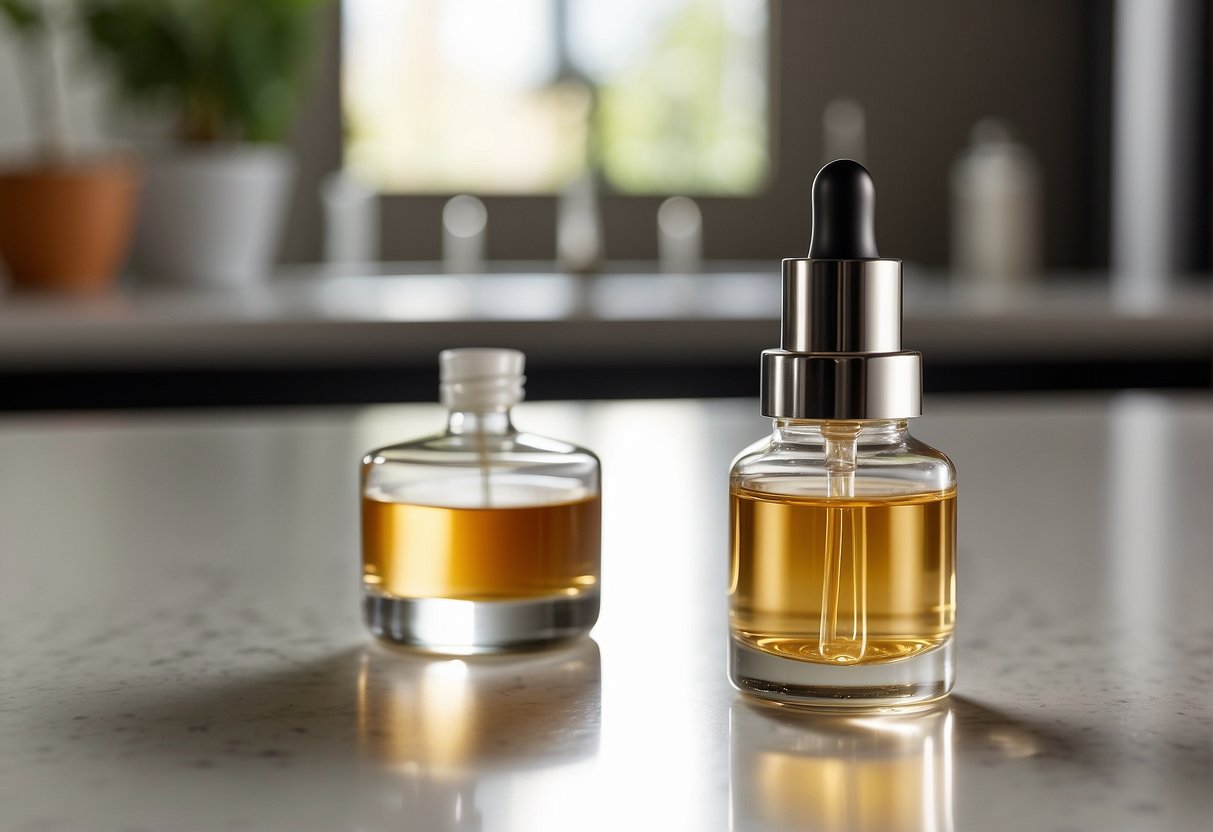
Tocopherol, commonly known as Vitamin E, serves as an antioxidant in skincare. Its inclusion in formulations not only helps to protect the skin but also enhances the product's stability.
How to Use Tocopherol in Skincare Routines
We incorporate tocopherol in our skincare routine primarily through serums, creams, and oils designed for topical application. It is most effective when applied directly to the skin, preferably as part of an evening routine to allow for maximum absorption without interference from sunlight. Serums with tocopherol should be applied after cleansing and before moisturizing to help fortify the skin's barrier.
Choosing the Right Tocopherol-Enriched Products
When selecting tocopherol-enriched cosmetics, we look for products that list tocopherol or tocopheryl acetate among the first few ingredients. Creams and lotions with a higher concentration of tocopherol may provide enhanced antioxidant benefits. It's important to choose oil-based tocopherol products for their water-binding capacity, which contributes to improved skin hydration.
Interactions with Other Skincare Ingredients
Tocopherol often works synergistically with other ingredients such as vitamin C and selenium, offering compounded photoprotective and anti-aging effects. However, it should be noted that while tocopherol can act as a preservative in cosmetic products, its efficacy might be undermined by some active ingredients. For this reason, we are meticulous in reviewing the compatibility of tocopherol with other components in our skincare regimen.
Safety and Side Effects
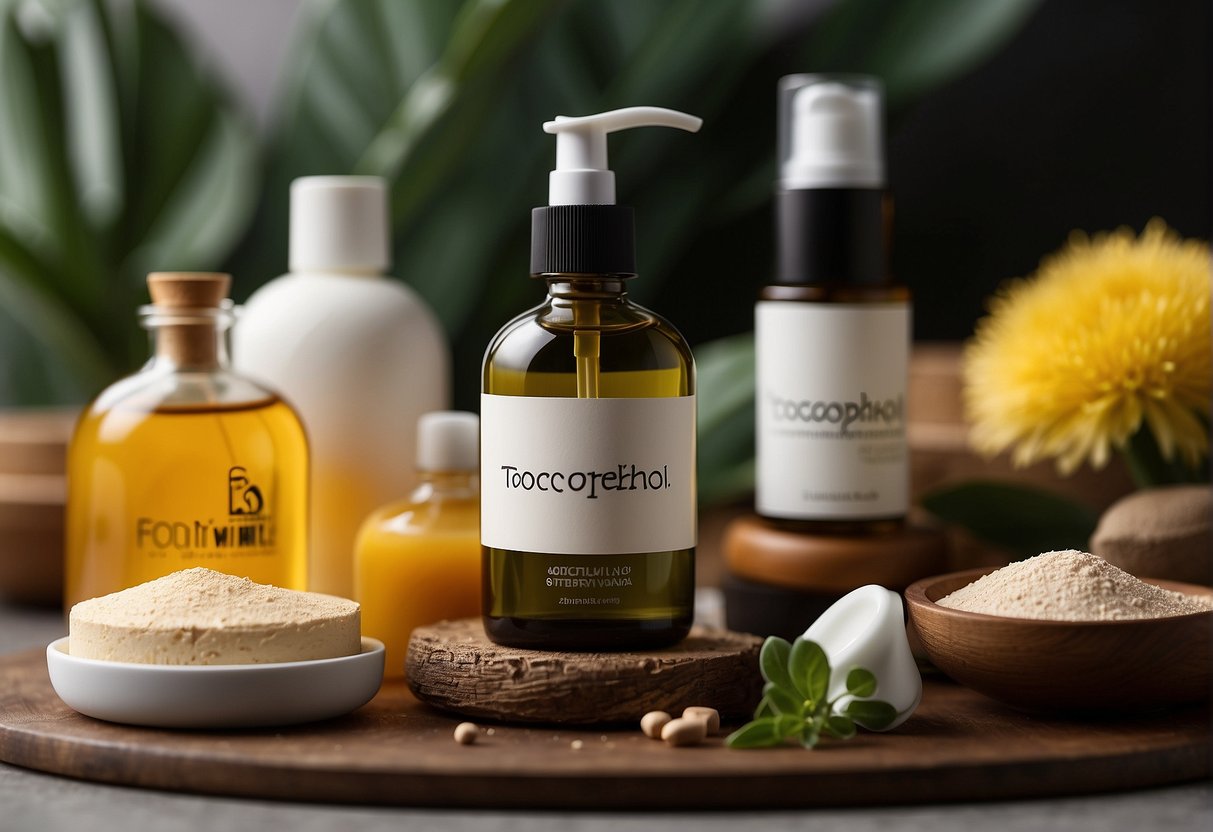
Before we explore specific concerns about tocopherol, it's crucial to note that tocopherol, commonly known as vitamin E, is generally considered safe for skin application. However, it's important to pay attention to potential allergic reactions and the appropriate dosing to mitigate the risk of side effects.
Potential Allergic Reactions and Irritation
While allergic reactions to tocopherol are rare, they can occur. Signs of an allergic reaction may include a rash, itching, or redness. When using tocopherol on your skin for the first time, it's important to conduct a patch test: apply a small amount to the inner forearm and monitor for any signs of irritation or allergy over 24 hours. If you notice adverse effects, discontinue use and consult with a doctor.
Dosing Considerations and Toxicity
The safety of tocopherol is also dependent on using the correct dosages. Vitamin E supplements, when consumed orally, have been shown to cause no consistent side effects at doses up to about 1000 milligrams. However, it's recommended to stay below such levels as higher doses may lead to adverse effects such as nausea, dizziness, and headache. Topically, tocopherol acetate, a common form of vitamin E used in skin products, is generally considered safe. The FDA has not specified a maximum allowable dose for topical application, suggesting low levels of concern for toxicity through skin absorption.
Considerations for Specific Groups and Conditions
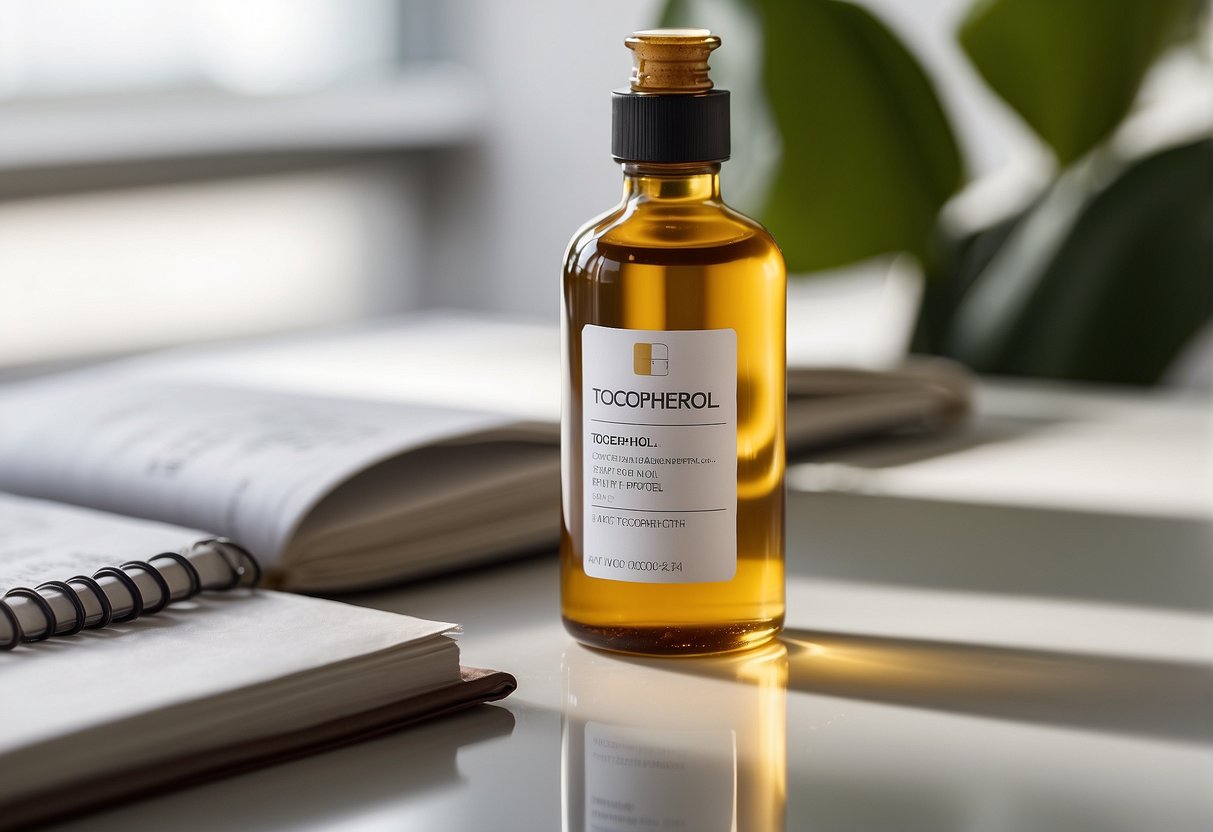
In this section, we focus on tocopherol's safety for skin with specific regard to its use during pregnancy, breastfeeding, and chronic health conditions. We aim to provide guidance based on the latest research about these particular groups and circumstances.
Tocopherol Use During Pregnancy and Breastfeeding
Pregnant and breastfeeding women should exercise caution when using tocopherol-enriched products. While tocopherol is known for its protective and anti-inflammatory properties, it's essential to consult a healthcare provider before usage, as there is limited research on its safety for the fetus and the nursing child. Products with tocopherol are typically regarded as safe, but they should be considered on a case-by-case basis, particularly if there are any concerns about vitamin D and niacin levels.
Tocopherol and Chronic Health Conditions
Individuals with chronic health conditions such as diabetes, cancer, or Alzheimer’s disease may consider tocopherol for its anti-inflammatory effects and potential to protect against environmental damage. However, those undergoing chemotherapy or at risk of age-related macular degeneration and prostate cancer should be cautious. Tocopherol can impact bleeding risk, hence, it is crucial to liaise with a healthcare provider when considering its use. It is significant to balance its protective benefits against UV light with the potential impact on existing health conditions.
Frequently Asked Questions
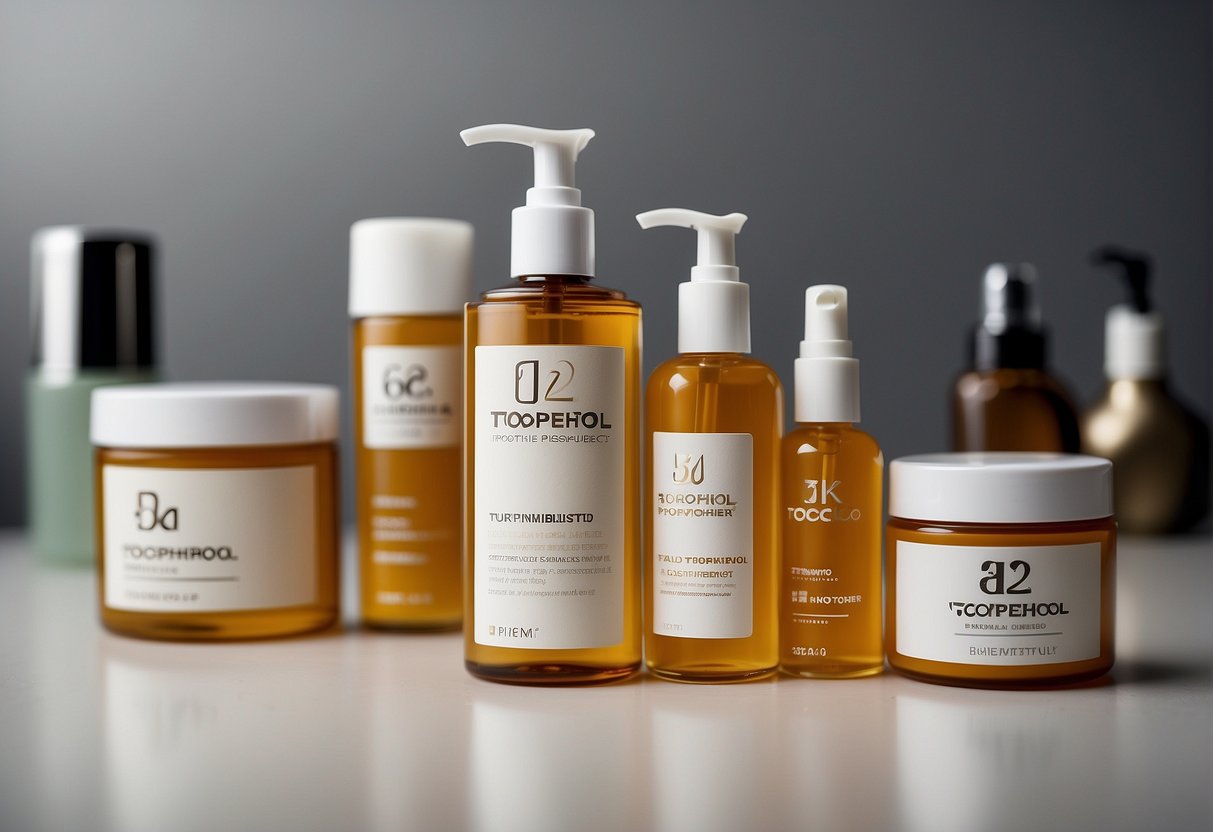
We'll address common inquiries regarding the safety and use of tocopherol, also known as vitamin E, in skin care products.
Can tocopherol cause skin irritation or allergic reactions?
Tocopherol is typically well-tolerated, but some individuals may experience skin irritation or allergic reactions. Patch testing before widespread use can identify sensitivity.
What are the benefits of using tocopherol in skin care products?
We recognize tocopherol as an antioxidant that helps protect the skin from damage caused by free radicals. Its hydrating properties also aid in skin repair and regeneration.
How does tocopherol compare to synthetic forms of vitamin E in terms of safety for the skin?
Natural tocopherol and synthetic forms generally share a comparable safety profile for skin application. However, natural tocopherol's higher biological activity may offer greater skin benefits.
Is there evidence to suggest that tocopherol is comedogenic and can clog pores?
Studies on tocopherol do not consistently demonstrate it to be comedogenic. It may depend on how it's formulated and the individual's skin type.
Are there any known dangers associated with using tocopherol on the skin?
When used appropriately in skin care formulations, tocopherol is not associated with significant dangers. Overuse or incorrect use, however, can potentiate skin irritation.
In what ways does tocopherol act on the skin when included in skin care formulations?
In skin care formulations, tocopherol acts primarily as an antioxidant. It helps in neutralizing harmful oxidants and contributes to maintaining healthy skin barrier function.